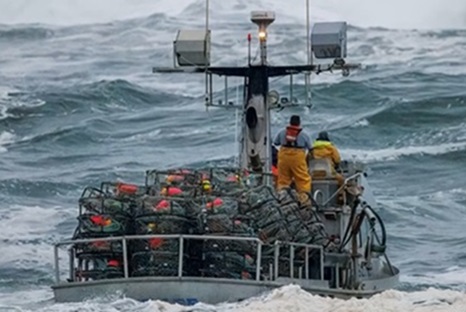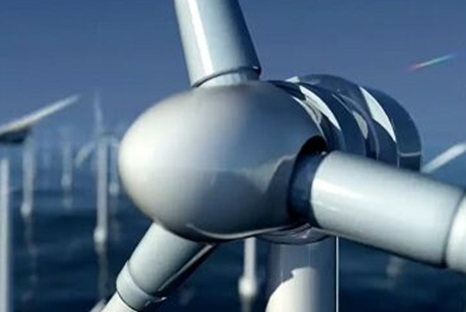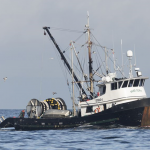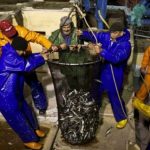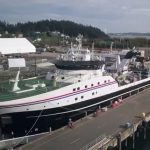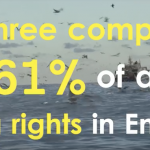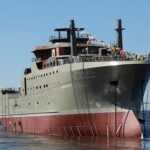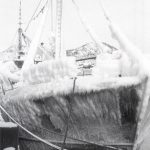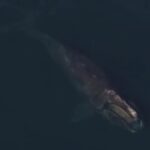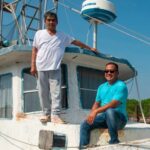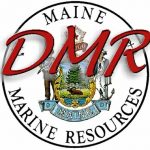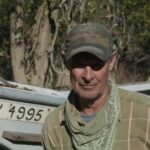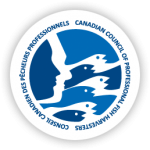Tag Archives: Oregon
Oregon’s Dungeness crab fuels families, $68M a year industry
 For many people, when Dungeness crab is on the menu, it’s a go-to in Oregon. It’s a savory treat that fuels a multi-million dollar a year industry in the state. “If I could, I’d eat it every day,” said Jared Reeves, a crab fisherman out of Coos Bay, whose spent much of his life on a boat, fishing with family. It’s a tradition that not only supports the state economy, but also families up and down the Oregon coast, like Reeves’. According to numbers from the Oregon Dungeness Crab Commission, commercial crabbing has over the last decade pulled in an average of more than $68 million a year. Typically, Dungeness crab fishing brings in more money than every other type of fishing in Oregon, said Crystal Adams, the executive director of the commission, which supports and promotes the state’s crabbing industry. Video, more, >>CLICK TO READ<< 09:39
For many people, when Dungeness crab is on the menu, it’s a go-to in Oregon. It’s a savory treat that fuels a multi-million dollar a year industry in the state. “If I could, I’d eat it every day,” said Jared Reeves, a crab fisherman out of Coos Bay, whose spent much of his life on a boat, fishing with family. It’s a tradition that not only supports the state economy, but also families up and down the Oregon coast, like Reeves’. According to numbers from the Oregon Dungeness Crab Commission, commercial crabbing has over the last decade pulled in an average of more than $68 million a year. Typically, Dungeness crab fishing brings in more money than every other type of fishing in Oregon, said Crystal Adams, the executive director of the commission, which supports and promotes the state’s crabbing industry. Video, more, >>CLICK TO READ<< 09:39

West Coast fishery managers troubled by NOAA layoffs as another 1,000 employees expected to be let go
The long-term impacts of staff cuts at the National Oceanic and Atmospheric Administration are still unknown, but fishery managers on the West Coast say the situation is troubling. On Feb. 27, NOAA laid off more than 800 workers as the Trump administration continues its push to reduce the federal workforce. On Saturday, the New York Times reported that the nation’s premier agency for weather and climate science has been told by the Trump administration to prepare to lose another 1,000 workers. more, >>CLICK TO READ<< 09:49
Oregon crab fishery faces scrutiny after record whale entanglements
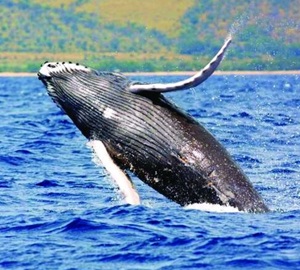 Oregon’s commercial Dungeness crab fishery is under increasing pressure to address whale entanglements after a record-breaking four incidents in 2024, including one as recently as January 6th. The Oregon Department of Fish and Wildlife (ODFW) has issued an advisory to crabbers, urging them to be vigilant and avoid setting gear in areas where whales are transiting or foraging; however, conservation groups like Oceana, a leading ocean conservation organization, criticized the advisory as inadequate and the voluntary measures are insufficient and they are calling for stronger, more decisive action. The ODFW advisory, while acknowledging the high number of entanglements, relies on voluntary compliance from the fishing fleet. It reminds crabbers to use best practices, such as minimizing surface gear, avoiding areas with high whale activity and promptly removing gear from the ocean. more, >>CLICK TO READ<< 14:51
Oregon’s commercial Dungeness crab fishery is under increasing pressure to address whale entanglements after a record-breaking four incidents in 2024, including one as recently as January 6th. The Oregon Department of Fish and Wildlife (ODFW) has issued an advisory to crabbers, urging them to be vigilant and avoid setting gear in areas where whales are transiting or foraging; however, conservation groups like Oceana, a leading ocean conservation organization, criticized the advisory as inadequate and the voluntary measures are insufficient and they are calling for stronger, more decisive action. The ODFW advisory, while acknowledging the high number of entanglements, relies on voluntary compliance from the fishing fleet. It reminds crabbers to use best practices, such as minimizing surface gear, avoiding areas with high whale activity and promptly removing gear from the ocean. more, >>CLICK TO READ<< 14:51
Lawmakers consider permanent funding for helpline for farmers, loggers and fishermen
 For more than a year, Oregonians involved in agriculture, forestry and the fishing industry have had a resource to help them when they’re in a mental health crisis. The AgriStress helpline, which launched in Oregon in September 2023, is geared toward people in those industries, offering a safe option to those who ordinarily might not seek help. “The pull-yourself-up-by-your-boot-strings mentality often prevents our community members from seeking help, making resources like the AgriStress helpline vital to breaking that cycle as imperative,” Republican state Rep. Bobby Levy of Echo, a longtime farmer and rancher, said during a recent legislative meeting on a bill to keep the line operating in perpetuity. more, >>CLICK TO READ<< 09:43
For more than a year, Oregonians involved in agriculture, forestry and the fishing industry have had a resource to help them when they’re in a mental health crisis. The AgriStress helpline, which launched in Oregon in September 2023, is geared toward people in those industries, offering a safe option to those who ordinarily might not seek help. “The pull-yourself-up-by-your-boot-strings mentality often prevents our community members from seeking help, making resources like the AgriStress helpline vital to breaking that cycle as imperative,” Republican state Rep. Bobby Levy of Echo, a longtime farmer and rancher, said during a recent legislative meeting on a bill to keep the line operating in perpetuity. more, >>CLICK TO READ<< 09:43
The Lobsters At This No-Fuss Oregon Restaurant Are Out-Of-This-World Delicious
 Imagine a place where seafood dreams come true, and the lobster is so good it might make you consider a permanent move to Portland. Welcome to Jake’s Famous Crawfish, a culinary gem that’s been serving up ocean-fresh delights since 1892. Let me tell you, folks, when it comes to seafood in Portland, Jake’s Famous Crawfish is the real deal. This place has been around longer than some countries, and there’s a good reason for that – they know their fish. Now, I know what you’re thinking: “Another seafood joint? What makes this one so special?” Well, hold onto your bibs, because we’re about to dive into a world of crustacean celebration that’ll make your taste buds do a happy dance. Jake’s Famous Crawfish may have ‘crawfish’ in its name, but their lobster game is strong enough to make a New Englander weep with joy. The Maine lobster is the star of the show, and boy, does it know how to work the room. Photos, more, >>CLICK TO READ<< 14:49
Imagine a place where seafood dreams come true, and the lobster is so good it might make you consider a permanent move to Portland. Welcome to Jake’s Famous Crawfish, a culinary gem that’s been serving up ocean-fresh delights since 1892. Let me tell you, folks, when it comes to seafood in Portland, Jake’s Famous Crawfish is the real deal. This place has been around longer than some countries, and there’s a good reason for that – they know their fish. Now, I know what you’re thinking: “Another seafood joint? What makes this one so special?” Well, hold onto your bibs, because we’re about to dive into a world of crustacean celebration that’ll make your taste buds do a happy dance. Jake’s Famous Crawfish may have ‘crawfish’ in its name, but their lobster game is strong enough to make a New Englander weep with joy. The Maine lobster is the star of the show, and boy, does it know how to work the room. Photos, more, >>CLICK TO READ<< 14:49
Judge denies crab buyers motion to dismiss crabbers price fixing lawsuit
 A U.S. federal judge of the Northern District of California denied the motion by dozens of crab buyers to dismiss price-fixing claims. The lawsuit follows an earlier suit back in March 2023 with plaintiffs Brand Little and Robin Burns, who accused Pacific Seafood, Washington-based Bornstein Seafood, and other US West Coast Crab companies of allegedly being part of a cartel that artificially suppressed prices paid to fishermen for Dungeness Crab. According to the complaint in the lawsuit, the cartel, allegedly led by Pacific Seafood, suppressed these prices paid to crabbers in California, Oregon, and Washington since the 2015- 2016 crabbing season.Video, more, >>CLICK TO READ<< 10:39
A U.S. federal judge of the Northern District of California denied the motion by dozens of crab buyers to dismiss price-fixing claims. The lawsuit follows an earlier suit back in March 2023 with plaintiffs Brand Little and Robin Burns, who accused Pacific Seafood, Washington-based Bornstein Seafood, and other US West Coast Crab companies of allegedly being part of a cartel that artificially suppressed prices paid to fishermen for Dungeness Crab. According to the complaint in the lawsuit, the cartel, allegedly led by Pacific Seafood, suppressed these prices paid to crabbers in California, Oregon, and Washington since the 2015- 2016 crabbing season.Video, more, >>CLICK TO READ<< 10:39
Local fishing boats depart for Alaska
 A number of the larger commercial fishing boats that call Newport’s Yaquina Bay their home headed out last week for the annual trek to Alaska’s Bering Sea. It can take eight to 10 days for them to make the journey up north, depending on the weather. Boats from Newport will be docking either at Dutch Harbor or Kodiak, where they will be based while fishing for pollack and cod, a fishery that generally lasts for several months. The Port of Newport’s International Terminal was hopping with activity last week as boat owners and their crews made final preparations. Photos, more, >>CLICK TO READ<< 06:32
A number of the larger commercial fishing boats that call Newport’s Yaquina Bay their home headed out last week for the annual trek to Alaska’s Bering Sea. It can take eight to 10 days for them to make the journey up north, depending on the weather. Boats from Newport will be docking either at Dutch Harbor or Kodiak, where they will be based while fishing for pollack and cod, a fishery that generally lasts for several months. The Port of Newport’s International Terminal was hopping with activity last week as boat owners and their crews made final preparations. Photos, more, >>CLICK TO READ<< 06:32
Fishermen embrace new streamlined life jackets in first-ever giveaway event
 Nonprofit Charleston Fishing Families hosted the first-ever life jacket giveaway on Friday for the commercial fishing fleet in Charleston. Local fishermen tried on the new Kent life jackets and were thankful, as previous life jackets were bulky and, in their words, dangerous. Steely Saye, captain of The Last Dance, says he’s been a fisherman for 15 years and that he’s excited for the change. Board President for the Charleston Fishing Families Mellissa Clemens said they have outfitted 113 fishermen with life jackets and said that historically many fishermen do not to wear life jackets due to safety concerns. Video, more, >>CLICK TO READ<< 07:01
Nonprofit Charleston Fishing Families hosted the first-ever life jacket giveaway on Friday for the commercial fishing fleet in Charleston. Local fishermen tried on the new Kent life jackets and were thankful, as previous life jackets were bulky and, in their words, dangerous. Steely Saye, captain of The Last Dance, says he’s been a fisherman for 15 years and that he’s excited for the change. Board President for the Charleston Fishing Families Mellissa Clemens said they have outfitted 113 fishermen with life jackets and said that historically many fishermen do not to wear life jackets due to safety concerns. Video, more, >>CLICK TO READ<< 07:01
Commercial Fisherman Benny Floyd Chestnut of Newport, Oregon, has passed away
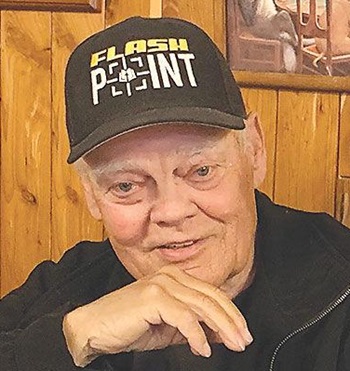 Benny Floyd Chestnut passed away peacefully on January 3, 2025. He was 82 years old. Benny served in the Navy Reserves from 1961-63. After that, he started Commercial Fishing in Eureka California and from then on….a fisherman at heart he was. He moved his family to Newport, Oregon in 1975 and here he stayed. He fished from the West Coast to the Bering Sea. He started 3 generations of fishermen, a son and grandson to follow in the same footsteps…and very proud of them he was. Newport was his home for a very long time, he loved it here. Newport is where he raised his family, finished his career and made many friends. more, >>CLICK TO READ<< 19:32
Benny Floyd Chestnut passed away peacefully on January 3, 2025. He was 82 years old. Benny served in the Navy Reserves from 1961-63. After that, he started Commercial Fishing in Eureka California and from then on….a fisherman at heart he was. He moved his family to Newport, Oregon in 1975 and here he stayed. He fished from the West Coast to the Bering Sea. He started 3 generations of fishermen, a son and grandson to follow in the same footsteps…and very proud of them he was. Newport was his home for a very long time, he loved it here. Newport is where he raised his family, finished his career and made many friends. more, >>CLICK TO READ<< 19:32
Governor Newsom requests federal fishery disaster relief to support albacore fishing industry
 Today, Governor Gavin Newsom announced a request for a federal fishery disaster declaration to support the albacore fishing industry. Last year marked the worst season for the West Coast North Pacific pole and troll albacore fishery in over 30 years. The California albacore fishery declined 71% in volume and 65% in value. Recognizing the importance of albacore to California’s commercial fisheries, Governor Newsom joined the governors of Washington and Oregon and submitted the request to U.S. Secretary of Commerce Gina Raimondo. If approved, the federal fishery disaster declaration would begin the process of providing needed relief to fishing communities financially impacted by the decline in albacore fishing. links, more, >>CLICK TO READ<< 18:36
Today, Governor Gavin Newsom announced a request for a federal fishery disaster declaration to support the albacore fishing industry. Last year marked the worst season for the West Coast North Pacific pole and troll albacore fishery in over 30 years. The California albacore fishery declined 71% in volume and 65% in value. Recognizing the importance of albacore to California’s commercial fisheries, Governor Newsom joined the governors of Washington and Oregon and submitted the request to U.S. Secretary of Commerce Gina Raimondo. If approved, the federal fishery disaster declaration would begin the process of providing needed relief to fishing communities financially impacted by the decline in albacore fishing. links, more, >>CLICK TO READ<< 18:36
In the Pacific Northwest, killing sea lions is a necessity
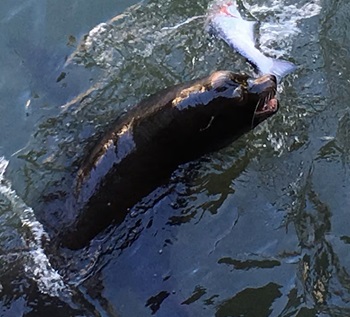 Don’t let their adorable faces and playful personalities fool you: California and Steller sea lions are capable of having disastrous impacts on nonnative ecosystems. In places like the Columbia River Gorge, these so-called dogs of the sea have been encroaching on native fish habitats for decades. Making homes in the Pacific, in coastal areas like the beaches of California, Alaska and Japan, these sea lions especially thrive on the West Coast, where population numbers are estimated to have grown from 75,000 to 257,000 in the last 30 years. This population boom has meant increased nutritional needs, sending thousands of sea lions inland in search of prey. One of the easiest targets for sea lions is the Columbia River, one of North America’s largest rivers and a key migration route for North American fish. The picturesque river valley abounds with seafood, including 13 federally protected species. more, >>CLICK TO READ<< 10:12
Don’t let their adorable faces and playful personalities fool you: California and Steller sea lions are capable of having disastrous impacts on nonnative ecosystems. In places like the Columbia River Gorge, these so-called dogs of the sea have been encroaching on native fish habitats for decades. Making homes in the Pacific, in coastal areas like the beaches of California, Alaska and Japan, these sea lions especially thrive on the West Coast, where population numbers are estimated to have grown from 75,000 to 257,000 in the last 30 years. This population boom has meant increased nutritional needs, sending thousands of sea lions inland in search of prey. One of the easiest targets for sea lions is the Columbia River, one of North America’s largest rivers and a key migration route for North American fish. The picturesque river valley abounds with seafood, including 13 federally protected species. more, >>CLICK TO READ<< 10:12
Pacific Seafood Completes Acquisition of Trident’s Kodiak Operations
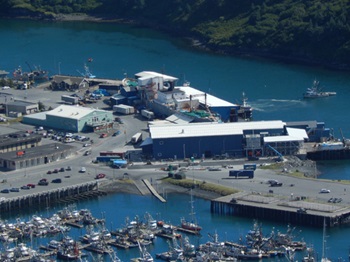 Pacific Seafood and Trident Seafoods today jointly announced the completion of Pacific’s acquisition of Trident’s Kodiak, Alaska, processing operations. The acquisition includes three well-established processing plants—Star of Kodiak, Alkod, and Kodiak Near Island—as well as the Plaza bunkhouse apartments for team member housing. Trident’s Kodiak team members will be retained by Pacific Seafood, ensuring continuity and stability for the team and the local community. “Kodiak is home to some of the most abundant and sustainable fisheries in the world, and we are honored to partner with our new, very talented team members, the fleet and the community to unlock new opportunities for this region,” more, >>CLICK TO READ<< 10:27
Pacific Seafood and Trident Seafoods today jointly announced the completion of Pacific’s acquisition of Trident’s Kodiak, Alaska, processing operations. The acquisition includes three well-established processing plants—Star of Kodiak, Alkod, and Kodiak Near Island—as well as the Plaza bunkhouse apartments for team member housing. Trident’s Kodiak team members will be retained by Pacific Seafood, ensuring continuity and stability for the team and the local community. “Kodiak is home to some of the most abundant and sustainable fisheries in the world, and we are honored to partner with our new, very talented team members, the fleet and the community to unlock new opportunities for this region,” more, >>CLICK TO READ<< 10:27
Oregon: Commercial Dungeness crab season begins Dec. 16
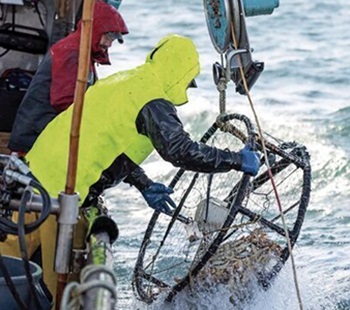 Oregon’s commercial Dungeness crab fishery opens Dec. 16 from Cape Falcon (Oswald State Park) to the California border. according to the Oregon Department of Fish and Wildlife (ODFW). “Pre-season testing in this area shows crab meat fill meets criteria and domoic acid is below the safety threshold,” a release from ODFW states. Oregon will open the north coast in coordination with southern Washington to ensure consumers get a quality product and crab is not wasted. Dec. 31 is the earliest this area could open. The commercial fleet can begin the presoak period – setting baited crab pots in the water – on Dec. 13 from Cape Falcon to the California border. more, >>CLICK TO READ<< 07:55
Oregon’s commercial Dungeness crab fishery opens Dec. 16 from Cape Falcon (Oswald State Park) to the California border. according to the Oregon Department of Fish and Wildlife (ODFW). “Pre-season testing in this area shows crab meat fill meets criteria and domoic acid is below the safety threshold,” a release from ODFW states. Oregon will open the north coast in coordination with southern Washington to ensure consumers get a quality product and crab is not wasted. Dec. 31 is the earliest this area could open. The commercial fleet can begin the presoak period – setting baited crab pots in the water – on Dec. 13 from Cape Falcon to the California border. more, >>CLICK TO READ<< 07:55
Capsized fishing boat off Alaska coast included Oregon crew member
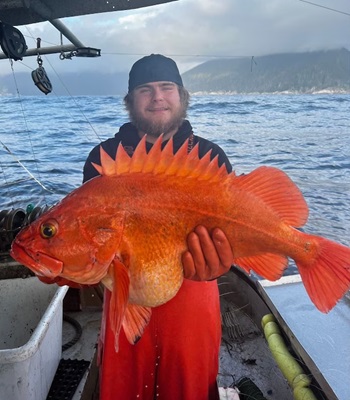 Before Jake Hannah, 22, left for his commercial fishing trip on Saturday night, he called his mother, who lives in his hometown of Coos Bay. “He said, ‘Hey mom, we’re getting ready to go out, I love you,’” That was our promise, “You always call me before you leave, and you always call me when you get home.” But the second call never came, she said. Instead, she learned her son’s boat, the F/V Wind Walker, had capsized in the stormy waters off the coast of Sitka, Alaska, with four other people on board. “I thought, ‘God please no, let these boys be safe,’” Carol Hannah said. “It wasn’t just Jake that I was worried about; it was the whole crew.” In his home state of Oregon, Jake Hannah continues to inspire people to remember who he was before he left for Alaska. “He was an all-around awesome guy; you couldn’t ask for a better friend,” Carol Hannah said. “He was the best son a mom could ever want.” Photos, more, >>CLICK TO READ<< 14:18
Before Jake Hannah, 22, left for his commercial fishing trip on Saturday night, he called his mother, who lives in his hometown of Coos Bay. “He said, ‘Hey mom, we’re getting ready to go out, I love you,’” That was our promise, “You always call me before you leave, and you always call me when you get home.” But the second call never came, she said. Instead, she learned her son’s boat, the F/V Wind Walker, had capsized in the stormy waters off the coast of Sitka, Alaska, with four other people on board. “I thought, ‘God please no, let these boys be safe,’” Carol Hannah said. “It wasn’t just Jake that I was worried about; it was the whole crew.” In his home state of Oregon, Jake Hannah continues to inspire people to remember who he was before he left for Alaska. “He was an all-around awesome guy; you couldn’t ask for a better friend,” Carol Hannah said. “He was the best son a mom could ever want.” Photos, more, >>CLICK TO READ<< 14:18
Commercial Fisherman/U. S. Army Veteran Jack Benton Cartwright of Oregon has passed away
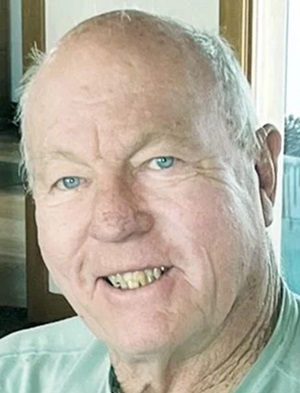 Jack Benton Cartwright was well known for his kindness and enthusiasm for life. He was a force of nature, and many have described him as “one of a kind.” Jack was born March 16, 1944, to Charlie and Okema Cartwright. He was raised on the Seaside Golf Course, which his parents owned until 1971. Jack graduated from Seaside High School in 1962, and shortly after he joined the U.S. Army. When he returned, he began logging in Alaska before starting his career as a commercial fisherman. After a few years of fishing, he and David Kelly bought the Arrow, and were exceptional halibut longliners. In 1979 he met Jane, who was working in Seward, Alaska, and was interested in fishing. In 1986, they bought an 80-foot steel boat and named it Kema Sue, in honor of his late mother and sister. Jack and Jane were married in front of family and friends, at a fun-loving celebration at Little Beach in Gearhart. more, >>CLICK TO READ<< 14:39
Jack Benton Cartwright was well known for his kindness and enthusiasm for life. He was a force of nature, and many have described him as “one of a kind.” Jack was born March 16, 1944, to Charlie and Okema Cartwright. He was raised on the Seaside Golf Course, which his parents owned until 1971. Jack graduated from Seaside High School in 1962, and shortly after he joined the U.S. Army. When he returned, he began logging in Alaska before starting his career as a commercial fisherman. After a few years of fishing, he and David Kelly bought the Arrow, and were exceptional halibut longliners. In 1979 he met Jane, who was working in Seward, Alaska, and was interested in fishing. In 1986, they bought an 80-foot steel boat and named it Kema Sue, in honor of his late mother and sister. Jack and Jane were married in front of family and friends, at a fun-loving celebration at Little Beach in Gearhart. more, >>CLICK TO READ<< 14:39
Commercial Dungeness crab season delayed until at least Dec. 16
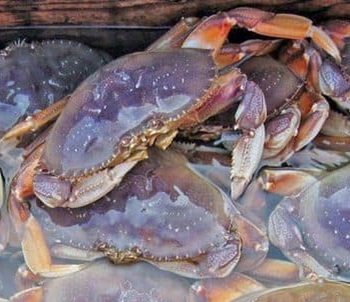 Oregon’s commercial Dungeness crab season is delayed coastwide until at least Dec. 16, Oregon Department of Fish and Wildlife announced today. Pre-season testing shows Dungeness crabs are too low in meat yield in some ocean areas and have elevated domoic acid in crab viscera (guts) in two areas on the south coast. Targeted to open Dec. 1, Oregon’s ocean commercial Dungeness crab season can be delayed so consumers get a high-quality product and crabs are not wasted. The next round of crab meat yield and biotoxin testing will occur in the coming weeks. Results help determine if the season opens Dec. 16 or is further delayed or split into areas with different opening dates. more, >>CLICK TO READ<< 17:28
Oregon’s commercial Dungeness crab season is delayed coastwide until at least Dec. 16, Oregon Department of Fish and Wildlife announced today. Pre-season testing shows Dungeness crabs are too low in meat yield in some ocean areas and have elevated domoic acid in crab viscera (guts) in two areas on the south coast. Targeted to open Dec. 1, Oregon’s ocean commercial Dungeness crab season can be delayed so consumers get a high-quality product and crabs are not wasted. The next round of crab meat yield and biotoxin testing will occur in the coming weeks. Results help determine if the season opens Dec. 16 or is further delayed or split into areas with different opening dates. more, >>CLICK TO READ<< 17:28
Pacific Seafood Halts All Processing in Eureka, Laying Off an Undisclosed Number of Employees
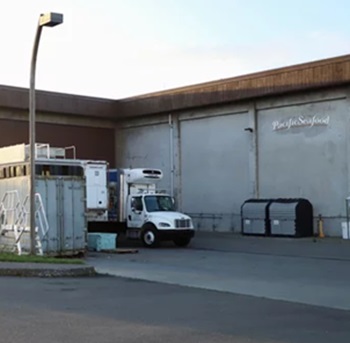 Pacific Seafood, the processing and distribution giant based in Clackamas, Ore., has halted all processing activity at its Eureka plant, dramatically scaling back its operations there and laying off an undisclosed number of local employees. The seafood getting unloaded here in Eureka is now being shipped north for processing at Pacific Seafood plants in Oregon, Ogan said. The 83-year-old company has nearly 40 locations across the country — from Kodiak, Alaska, to Miami, Fla. — and employs somewhere in the neighborhood of 2,500 people nationwide. Local fisherman Mike Cunningham, who has been selling his catch to Pacific Seafood for 35 years, said the company has removed much of its processing equipment and shipped it north to plants in Oregon, where it anticipates more abundant crabbing. “They are going to continue to buy crabs here, and they have some residual processing capacity,” Cunningham said. more, >>CLICK TO READ<< 15:37
Pacific Seafood, the processing and distribution giant based in Clackamas, Ore., has halted all processing activity at its Eureka plant, dramatically scaling back its operations there and laying off an undisclosed number of local employees. The seafood getting unloaded here in Eureka is now being shipped north for processing at Pacific Seafood plants in Oregon, Ogan said. The 83-year-old company has nearly 40 locations across the country — from Kodiak, Alaska, to Miami, Fla. — and employs somewhere in the neighborhood of 2,500 people nationwide. Local fisherman Mike Cunningham, who has been selling his catch to Pacific Seafood for 35 years, said the company has removed much of its processing equipment and shipped it north to plants in Oregon, where it anticipates more abundant crabbing. “They are going to continue to buy crabs here, and they have some residual processing capacity,” Cunningham said. more, >>CLICK TO READ<< 15:37
Election Jitters, Industry Headwinds Undermine Biden’s Final Offshore Wind Auction
 A U.S. auction of offshore wind development rights in the Gulf of Maine on Tuesday drew bids for only half of the eight offered leases, for a total of just $21.9 million in high bids, in the latest sign of deep industry malaise. The sale was a stark display of the lack of industry appetite for new investment after a year of high-profile setbacks that include canceled projects, two shelved lease sales in Oregon and the Gulf of Mexico and a construction accident at the nation’s first major offshore wind project. The auction was the last before President Joe Biden, a Democrat, leaves office in January. more, >>CLICK TO READ<< 07:25
A U.S. auction of offshore wind development rights in the Gulf of Maine on Tuesday drew bids for only half of the eight offered leases, for a total of just $21.9 million in high bids, in the latest sign of deep industry malaise. The sale was a stark display of the lack of industry appetite for new investment after a year of high-profile setbacks that include canceled projects, two shelved lease sales in Oregon and the Gulf of Mexico and a construction accident at the nation’s first major offshore wind project. The auction was the last before President Joe Biden, a Democrat, leaves office in January. more, >>CLICK TO READ<< 07:25
Offshore wind looked like a sure thing for Oregon — until it wasn’t.
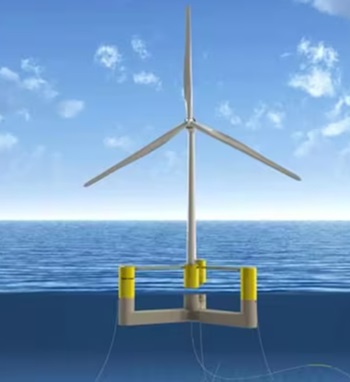 A push to bring floating offshore wind technology to the Southern Oregon coast was gaining momentum. The Oregon Department of Energy saw floating offshore wind playing a critical role in the state’s, and the region’s renewable energy goals. The Biden administration had ambitious national goals for developing offshore wind, and the Oregon Coast played a key role. For the U.S. Department of Interior’s Bureau of Ocean Energy Management, or BOEM, the years-long process of identifying areas for development and selecting potential bidders to see if the technology would work off the coast was coming to a close. And then, in a single week in late September — after years of effort, and less than three weeks before BOEM officials expected to choose a company to develop offshore wind — everything fell apart. more, >>CLICK TO READ<< 13:09
A push to bring floating offshore wind technology to the Southern Oregon coast was gaining momentum. The Oregon Department of Energy saw floating offshore wind playing a critical role in the state’s, and the region’s renewable energy goals. The Biden administration had ambitious national goals for developing offshore wind, and the Oregon Coast played a key role. For the U.S. Department of Interior’s Bureau of Ocean Energy Management, or BOEM, the years-long process of identifying areas for development and selecting potential bidders to see if the technology would work off the coast was coming to a close. And then, in a single week in late September — after years of effort, and less than three weeks before BOEM officials expected to choose a company to develop offshore wind — everything fell apart. more, >>CLICK TO READ<< 13:09
Salmon Spotted in Klamath Basin for First Time in More Than a Century
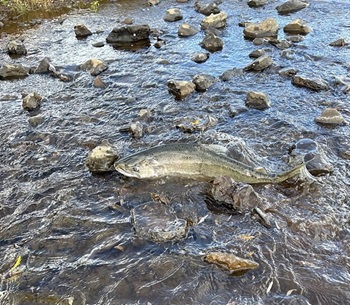 On Wednesday, an Oregon Department of Fish and Wildlife biologist spotted a first-in-a-century sight on a tributary to the Klamath River in the Klamath Basin: A fall-run Chinook salmon. Just weeks after the last remnants of the four hydroelectric dams that used to clog the lower Klamath River were hauled away, concluding what was the largest dam removal effort in United States history, the first salmon was spotted in the Klamath Basin area since 1912, when the first of the dams was installed, blocking fish passage to the hundreds of miles of historic habitat. Video, more, >>CLICK TO READ<< 10:40
On Wednesday, an Oregon Department of Fish and Wildlife biologist spotted a first-in-a-century sight on a tributary to the Klamath River in the Klamath Basin: A fall-run Chinook salmon. Just weeks after the last remnants of the four hydroelectric dams that used to clog the lower Klamath River were hauled away, concluding what was the largest dam removal effort in United States history, the first salmon was spotted in the Klamath Basin area since 1912, when the first of the dams was installed, blocking fish passage to the hundreds of miles of historic habitat. Video, more, >>CLICK TO READ<< 10:40
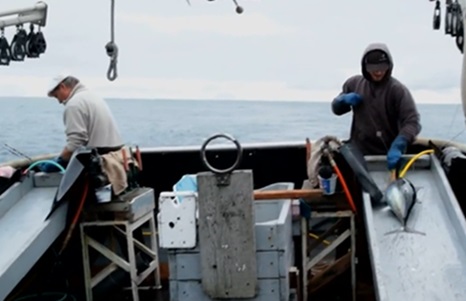
All hail the king of tuna, Oregon’s prized catch
One of Oregon’s most valuable seafoods is more popular than ever, but its nickname may fool you: chicken of the sea. It’s albacore tuna, and it is a fish that is grounded in Oregon commercial fishing history that reaches back nearly a century ago. Back then, West Coast fishermen went far out to sea in search of the albacore, also known as “chicken of the sea.” Albacore tuna entered Oregon fish markets in the 1930s when Oregon ports from Coos Bay to Astoria were home to large fishing fleets, dozens of canneries and thousands of employees who processed the catch. While Oregon’s large-scale canneries are long gone, albacore fishing techniques haven’t changed much at all, according to Steve Fick of Fishhawk Fisheries. Video, more, >>CLICK TO READ<< 09:55
Galveston business entangled in net of fraud allegations and whistleblowers
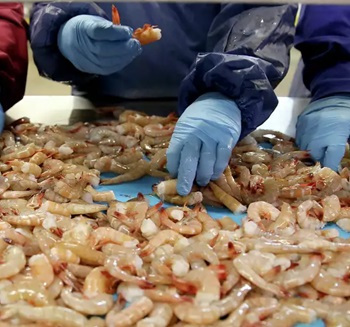 A shrimp business and former market that has been a cornerstone of Galveston for more than 45 years is in the muck, as it and its parent company are mired in a number of lawsuits alleging everything from fraud to shorting an employee. Galveston Shrimp Company was founded in 1978 by Sicilian immigrant Rosario Cassarino. For nearly 20 years, Rosario and wife Giovanna sold fish and shrimp that was brought onto the island. Their son Nello Cassarino assumed a leadership role in Galveston Shrimp Co. in 1994, and in 2011 he re-formed the company under the umbrella of Pacific Seafood, a family-owned market and business out of Portland, Ore. But now there’s a rift between Cassarino and Pacific Seafood, which owns 80 percent of Galveston Shrimp Co. According to ongoing litigation as reported by the Galveston Daily News, Cassarino is suing Pacific Seafood for $1 million, accusing the company of shorting him on revenue and self-dealing. Cassarino originally filed the lawsuit in Texas in 2023, but a judge moved the suit to Oregon. More, >>CLICK TO READ<< 10:04
A shrimp business and former market that has been a cornerstone of Galveston for more than 45 years is in the muck, as it and its parent company are mired in a number of lawsuits alleging everything from fraud to shorting an employee. Galveston Shrimp Company was founded in 1978 by Sicilian immigrant Rosario Cassarino. For nearly 20 years, Rosario and wife Giovanna sold fish and shrimp that was brought onto the island. Their son Nello Cassarino assumed a leadership role in Galveston Shrimp Co. in 1994, and in 2011 he re-formed the company under the umbrella of Pacific Seafood, a family-owned market and business out of Portland, Ore. But now there’s a rift between Cassarino and Pacific Seafood, which owns 80 percent of Galveston Shrimp Co. According to ongoing litigation as reported by the Galveston Daily News, Cassarino is suing Pacific Seafood for $1 million, accusing the company of shorting him on revenue and self-dealing. Cassarino originally filed the lawsuit in Texas in 2023, but a judge moved the suit to Oregon. More, >>CLICK TO READ<< 10:04
Helicopter Logger/Commercial Fisherman James Michael Modderman, of Brownsville Oregon has passed away
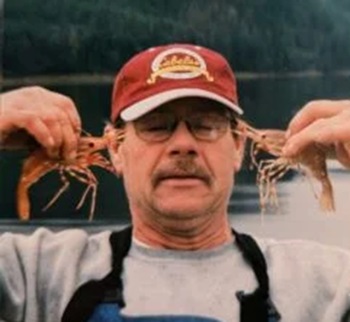 James Michael Modderman, 72, of Brownsville Oregon passed away peacefully in hospice care at Helping Hearts, Saturday, October 5, 2024. He was born November 7, 1951 at Naeve Hospital in Albert Lea, MN to Russell and JoAnn (Floyd) Modderman. In 1975, James and wife Marian moved to the Oregon coast and raised two children. James was one of the 1st in the Helicopter Logging Industry cutting cedar. He owned and operated a commercial bay crabbing boat and worked on commercial fishing boats off the Oregon coast. In 1989 James and his family moved back to Albert Lea to be closer to family. James then moved back to the Oregon coast in 2007 and in 2021 moved to Brownsville, Oregon. more, >>CLICK TO READ<< 15:56
James Michael Modderman, 72, of Brownsville Oregon passed away peacefully in hospice care at Helping Hearts, Saturday, October 5, 2024. He was born November 7, 1951 at Naeve Hospital in Albert Lea, MN to Russell and JoAnn (Floyd) Modderman. In 1975, James and wife Marian moved to the Oregon coast and raised two children. James was one of the 1st in the Helicopter Logging Industry cutting cedar. He owned and operated a commercial bay crabbing boat and worked on commercial fishing boats off the Oregon coast. In 1989 James and his family moved back to Albert Lea to be closer to family. James then moved back to the Oregon coast in 2007 and in 2021 moved to Brownsville, Oregon. more, >>CLICK TO READ<< 15:56
Lawsuit claims Oregon-based Pacific Seafood fired employee for reporting scheme to cheat shrimp boats out of millions
 A former Pacific Seafood employee has filed a $2.25 million lawsuit against his former employer, one of the nation’s biggest seafood companies, claiming it fired him after he discovered one of the brands had been falsifying the weights of catches it bought from shrimp boats and wrongly pocketed an extra $10 million to $20 million. The Portland-area company disputes the allegations in Justin Ottman’s lawsuit, filed last week in Multnomah County Circuit Court. Ottman’s suit, however, describes him as a whistleblower — claiming he’d documented the alleged years-long fraud in a 170-page report he presented to top executives. But his suit says when he continued to push the company to make it right, the company demoted him from his position as interim chief financial officer, forced him to work remotely and gave his desk to an intern before ultimately firing him by telling him his position had been “eliminated” in December 2023. more, >>CLICK TO READ<< 10:23
A former Pacific Seafood employee has filed a $2.25 million lawsuit against his former employer, one of the nation’s biggest seafood companies, claiming it fired him after he discovered one of the brands had been falsifying the weights of catches it bought from shrimp boats and wrongly pocketed an extra $10 million to $20 million. The Portland-area company disputes the allegations in Justin Ottman’s lawsuit, filed last week in Multnomah County Circuit Court. Ottman’s suit, however, describes him as a whistleblower — claiming he’d documented the alleged years-long fraud in a 170-page report he presented to top executives. But his suit says when he continued to push the company to make it right, the company demoted him from his position as interim chief financial officer, forced him to work remotely and gave his desk to an intern before ultimately firing him by telling him his position had been “eliminated” in December 2023. more, >>CLICK TO READ<< 10:23
“I am glad this auction has been canceled”: City of Brookings responds to BOEM wind energy plan delay
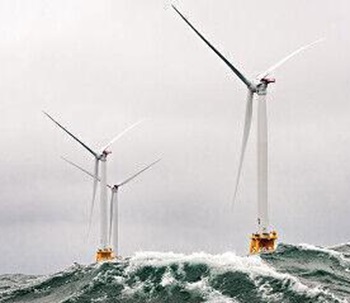 In response to the auction being postponed Brookings mayor Isaac Hodges said, “I’m happy that even a pause shows that there’ll hopefully be a little bit more input from the community to allow for a little bit more of our voices to be heard. There definitely was a lot of trust lost with the way that this was pushed forward.” His colleague on the Brookings City Council gave a statement, calling this a positive move for the city. “I am glad this auction has been canceled. There was very little local support for the offshore wind energy project – it was not cost effective, the impacts on recreational and commercial fishing were ignored by the federal government, along with the adverse impact on marine mammals, birds, shellfish and other wildlife. It is absurd the state and federal government ignored concerns about the impact on our way of life on the southern Oregon Coast. We would have been forced to see offshore wind mills day and night and would have had to deal with the environmental impacts of giant windmills washing up on our shoreline after major winter storms. The city of Brookings has opposed this project from the beginning. I am glad this has fallen apart now, instead of after major environmental and economic damage was done to our region.” more, >>CLICK TO READ<< 07:48
In response to the auction being postponed Brookings mayor Isaac Hodges said, “I’m happy that even a pause shows that there’ll hopefully be a little bit more input from the community to allow for a little bit more of our voices to be heard. There definitely was a lot of trust lost with the way that this was pushed forward.” His colleague on the Brookings City Council gave a statement, calling this a positive move for the city. “I am glad this auction has been canceled. There was very little local support for the offshore wind energy project – it was not cost effective, the impacts on recreational and commercial fishing were ignored by the federal government, along with the adverse impact on marine mammals, birds, shellfish and other wildlife. It is absurd the state and federal government ignored concerns about the impact on our way of life on the southern Oregon Coast. We would have been forced to see offshore wind mills day and night and would have had to deal with the environmental impacts of giant windmills washing up on our shoreline after major winter storms. The city of Brookings has opposed this project from the beginning. I am glad this has fallen apart now, instead of after major environmental and economic damage was done to our region.” more, >>CLICK TO READ<< 07:48
Humboldt Fisherman’s Wives Holding Burn Recovery Fundraiser for Captain and Two Crews Members of Mariah K
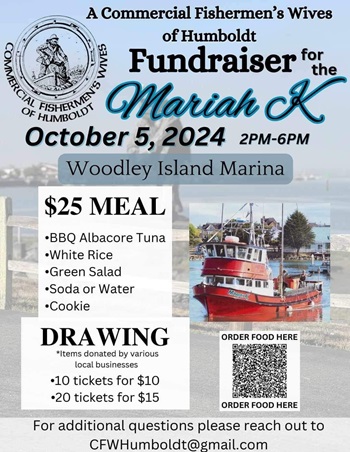 The Humboldt fisherman’s wives has generously offered to put on a Burn recovery fundraiser for my nephew and his 2 crew members that sustained severe burns while commercial fishing off of Oregon Coast a month ago when the boat engine exploded. The 2 crew were released from the hospital a couple weeks ago and are now recovering at home. My nephew Emanuel, the captain of the Mariah K is still in the intensive care unit at St Francis burn center in San Francisco. more, >>CLICK TO READ<< 07:02
The Humboldt fisherman’s wives has generously offered to put on a Burn recovery fundraiser for my nephew and his 2 crew members that sustained severe burns while commercial fishing off of Oregon Coast a month ago when the boat engine exploded. The 2 crew were released from the hospital a couple weeks ago and are now recovering at home. My nephew Emanuel, the captain of the Mariah K is still in the intensive care unit at St Francis burn center in San Francisco. more, >>CLICK TO READ<< 07:02
US offshore wind projects pelted with suits to end, delay progress
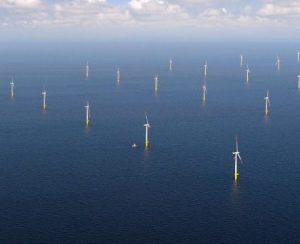 There are 13 cases pending in federal courts targeting offshore wind projects, according to the American Clean Power Association, an offshore wind trade group. An undetermined number of additional lawsuits is active in state courts, they said. Robin Shaffer is president of Protect Our Coast NJ, a citizens group that has filed numerous lawsuits in New Jersey against two offshore projects currently or previously proposed. Shaffer said his group was at least partly responsible for scuttling two New Jersey wind farms proposed by Orsted that the Danish wind giant scrapped in October, saying they were no longer financially workable. more, >>CLICK TO READ<< 08:57
There are 13 cases pending in federal courts targeting offshore wind projects, according to the American Clean Power Association, an offshore wind trade group. An undetermined number of additional lawsuits is active in state courts, they said. Robin Shaffer is president of Protect Our Coast NJ, a citizens group that has filed numerous lawsuits in New Jersey against two offshore projects currently or previously proposed. Shaffer said his group was at least partly responsible for scuttling two New Jersey wind farms proposed by Orsted that the Danish wind giant scrapped in October, saying they were no longer financially workable. more, >>CLICK TO READ<< 08:57
Oregon Tribes sue federal government to stop offshore wind auction
 The Confederated Tribes of Coos, Lower Umpqua and Siuslaw Indians are suing the federal government in an attempt to stop Oregon’s first-ever offshore wind energy auction scheduled to take place next month. The lawsuit, filed late on Friday, challenges the U.S. Bureau of Ocean Energy Management’s environmental analysis and decision to proceed with the sale of leases for two offshore wind energy areas totaling nearly 195,000 acres, one near Coos Bay and the other near Brookings. The wind energy areas are within the tribes’ ancestral territory. The tribes say they contain critical fish and marine wildlife habitat, viewsheds of significant cultural and historic significance and key tribal and commercial fishing grounds. more, >>CLICK TO READ<< 15:27
The Confederated Tribes of Coos, Lower Umpqua and Siuslaw Indians are suing the federal government in an attempt to stop Oregon’s first-ever offshore wind energy auction scheduled to take place next month. The lawsuit, filed late on Friday, challenges the U.S. Bureau of Ocean Energy Management’s environmental analysis and decision to proceed with the sale of leases for two offshore wind energy areas totaling nearly 195,000 acres, one near Coos Bay and the other near Brookings. The wind energy areas are within the tribes’ ancestral territory. The tribes say they contain critical fish and marine wildlife habitat, viewsheds of significant cultural and historic significance and key tribal and commercial fishing grounds. more, >>CLICK TO READ<< 15:27






